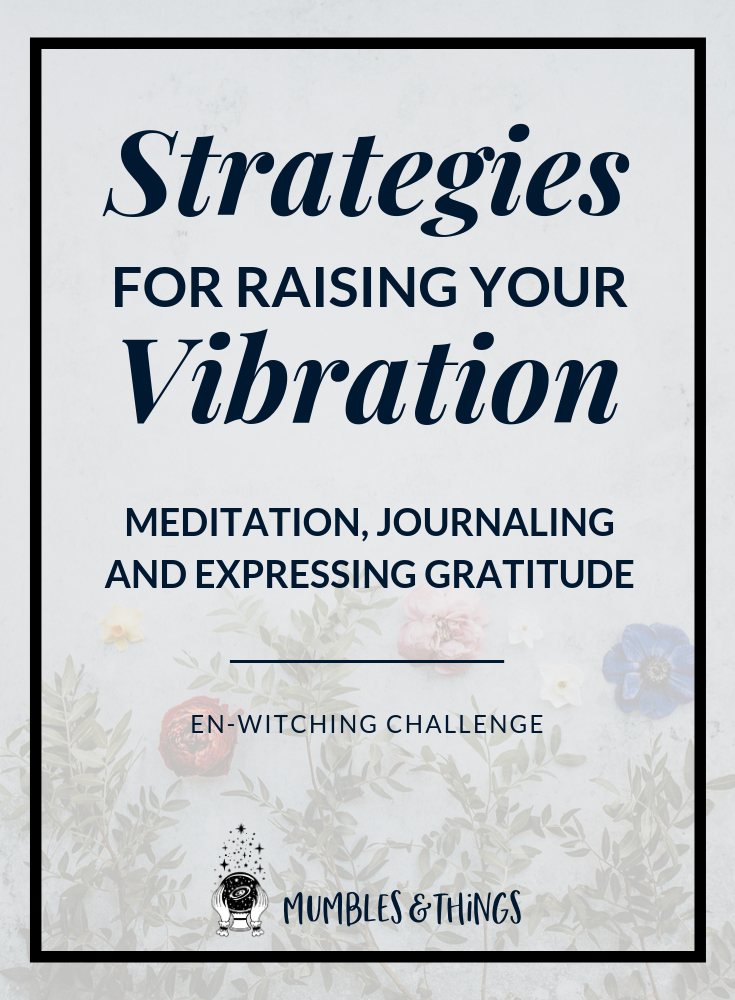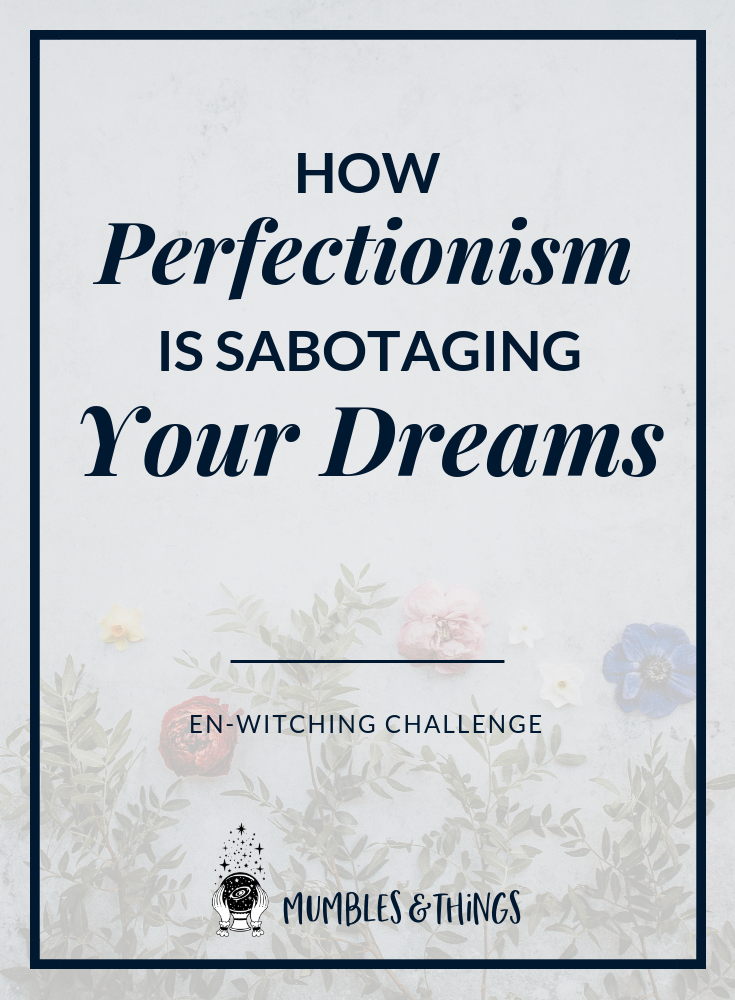What is Cultural Appropriation? Part 2
You’re in the right place if you…
are an social justice activist
understand imperialism, colonization, white supremacy, classism, etc.
want to have a more nuanced discussion of cultural appropriation
If you have never heard of cultural appropriation and are new to thinking about your privilege or your role in structural oppression in this world, take a moment and go read Part 1, then come back to this post. I’ll wait.
Ready to move forward? Cool, me too! This is where I am right now so these are some of my more recent thoughts and research on cultural appropriation.
Before we begin I want to remind you of where I’m coming from. I’m a Witch of European descent: I was born with the privilege that comes from this heritage. I recognize that my position on cultural appropriation is coming from a place of privilege because I have never dealt with discrimination for what I wore, what I ate, what I did, based on the color of my skin. I also recognize that my perspective is likely unnecessary and I may be shouting into the void. But, there may be a chance I am shouting in the right direction, therefore, I am choosing to use my privilege and my platform to discuss this topic in an effort to bring this issue into the light.
Related: Check your Privilege
What are we really angry about?
The cultural appropriation conversation tends to focus on conflict over who’s ancestors own what. But what are we really angry about? What is at the heart of cultural appropriation?
Do we really want to know who owns henna? Does it belong to Indian or Pakistani women? Or is it for Egyptians who also participate in this form of body art? Should people outside of these cultures not be allowed to learn and profit from this skill?
What about yoga? People will say that it belongs to the people of India. In truth, yoga belongs to the privileged, rich people of India, the upper class. Trying to ban yoga from Westerners is not a noble cause. A noble cause would be to make it more accessible to the oppressed people of India.
Where does the idea of a Shaman originate? “Shaman,” is an English word that was borrowed from German, which was borrowed from Russian, which was borrowed from the Tungus people of Siberia. But the word has origins beyond the Tungus as well. We don't know if it was borrowed originally from Chinese or Pali. Some say it’s a Filipino word, in part referring to the practice animism. But it may have come from Sanskrit before that, and who knows beyond that?
There are some shamanic practices that are closed to non-initiates. But practically every culture on this planet has some form of shamanism in it’s history.
Who gets to learn which language? Who gets to benefit from Chakra work? Who gets to make dream catchers? Who gets to practice Kama Sutra? What are we actually calling out?
It’s actually about oppression.
I’d like to make the argument that it’s not about the thing, the practice, the word, the clothing. It’s actually about the oppression.
Oppressed or minority groups throughout history have been made to feel powerless and helpless. Their oppressor mocks their culture, murders their people, steals their land. Their story is told from the oppressors perspective. And then their culture is picked apart, and profited from and trivialized. It’s only natural that they would want that bit back for themselves.
But is it really just that they want this piece of their culture back? Or do they want to have not faced the oppression in the first place?
To bring it home let’s talk about witchcraft. Witches have been oppressed and made to feel powerless and helpless for centuries. Our practice is mocked by the mainstream, we are told we are crazy or delusional. “Sage doesn’t cleanse,” “Crystals don’t heal,” “Tarot can’t give you messages.”
Hollywood tells our story and turns us into satanists and cannibals. Or sometimes sex fanatics, or just the butt of a joke.
When the witch kit was announced by Sephora, there was outrage for some of us. There were a variety of responses because we are a diverse community with differing opinions. Some of those reasons stated that the kit was cultural appropriation, what was the reason?
Did we really want that part of our practice only for the witch community? Did we want sage and tarot and crystals just for ourself and not let others have them? We were mocked for it so shouldn’t it just be ours? Or did we just wish we hadn’t faced the oppression and ridicule in the first place.
Owning said thing doesn’t give the control back when oppression is at the core of it all. The scars from oppression remain.
Sometimes people with structural power—oftentimes this is white people—will profit off the works of people of color. And will get a lot more credit for it than people of color do. But I do not think the solution to that is so much to tell people to stop consuming something. This puts responsibility and blame on individuals, when we should be fighting the powers that be.
To me some of these discussion about cultural appropriation seem a little petty. To make it about the thing, the piece of clothing, the practice, when really it’s about the oppression.
In fact, in some ways, the use of the phrase “cultural appropriation” complicates the discussion of oppression and discrimination in all it’s forms. There are some things involved in the conversation of cultural appropriation that we should just call them what they are: racism, or sexism, or homophobia, or classism.
I feel sometimes cultural appropriation markets itself as fighting social injustice in whatever form it arrives in, but then it detracts from the issue of injustice. Calling out someone for cultural appropriation turns the oppression someone faced into an argument about who gets to wear that thing, say that thing, eat that thing, enjoy that thing.
It turns into a fight about whose ancestors owned what, and that puts nationalism at the core of this entire issue. There is a streak of nationalism and cultural superiority here that is often hard to ignore.
Humans are always borrowing elements from other cultures, and that kind of thing has been more beneficial than harmful. If you have taken my Runes eCourse, you may remember how alphabets spread from Egypt and it was through the mutual sharing of culture. There is no such thing as cultural origin because no culture exists without borrowing things from another.
dismantling the power structure
Instead of worrying about who gets to wear henna, practice yoga, talk about their spirit animal, why not focus on making the world a safer place for people of color, poor people, marginalized people?
So of course we should be concerned about the oppression and racism experienced by the groups who lay claim to various practices. And we should listen to the voices of the people who experience discrimination. But often, the conversation surrounding cultural appropriating becomes so contentious it’s hard to remember what we’re even talking about.
I personally believe that a more productive conversation would involve dismantling the power structure that results in this discrimination in the first place.
Witchcraft is inherently creative
In conclusion, I don’t want to call you out, but to call you in. In to contemplation, action and a more complex view of the realities of the damage that marginalized cultures experience.
Cultural appropriation is such a delicate topic with a lot of gray areas. I feel like the dividing line is whether you intend to honor the culture or if you’re simply profiting from the culture. “Appropriation” to a certain degree can serve to bridge disparate cultures if done appropriately.
The important thing is to be aware of everything you are picking up along the way…
Does it belong to a closed culture?
Is your application of this practice respectful to the culture you are borrowing from?
Who is profiting off of your participation and purchase of a training or a tool or a piece of art?
Are you basing your adopted practice off some imaginary or wishful interpretation of what being part of this culture really means?
As witches, we should strive to learn about and respect the history, experience and traditions of other cultures. If we’re not part of those cultures, we don’t get to pick and choose parts of them to “borrow”. If we want to be part of those cultures, and it’s possible, then we must do the work required to join the community. If it’s not possible (for example, if those practices are part of a racial tradition that we can’t share) then we need to accept that, and move on.
Witchcraft is inherently creative, so there’s no need to appropriate when we can simply create!
Since we live in a postcolonial world, it can be difficult to overcome this outlook. When we’re part of the dominant group, we start from a position of ignorance because we haven’t directly experienced the consequences of cultural appropriation. We haven’t lived with the harm.
But emotions and feelings of confusion, fear, anger, or guilt are a good start. Take this opportunity to act, rather than react. Begin by challenging yourself first. Sort out what is appropriated, find and create traditions and practices that you can be proud of.
It’s time to confront and change the systems of oppression that harm the disenfranchised. We need to build power dynamic that flows from within and without. Something that shares without stealing. That is built on a foundation of equality.
It’s not an easy task, and it will take time, but it is necessary.
Continue your journey and share your experiences on the Mumbles and Things Facebook page.
There is a group on Facebook and it was made for you. It is a safe and supportive place for New Age* practitioners to gather and grow their personal power while encouraging one another.
If you are a newbie hoping to learn how to become a witch or are experienced and would like to learn from like-minded folks, this group is for you.
*Metaphysical, Pagan, New Age, Lightworkers, Energy Workers, Shamans, Wiccan, Neo-Pagan, Witches, Angel Workers, Healers, Psychics, Spiritualists, and so many others fall under the umbrella of "New Age."
Join the Community Group.
Now it’s your turn!
How do we respectfully exchange with other spiritual cultures? What are we giving in exchange for the knowledge that we gain and use for our own spiritual experiences? How can we respect the context, culture, history and people of the cultures we are exchanging with?

























